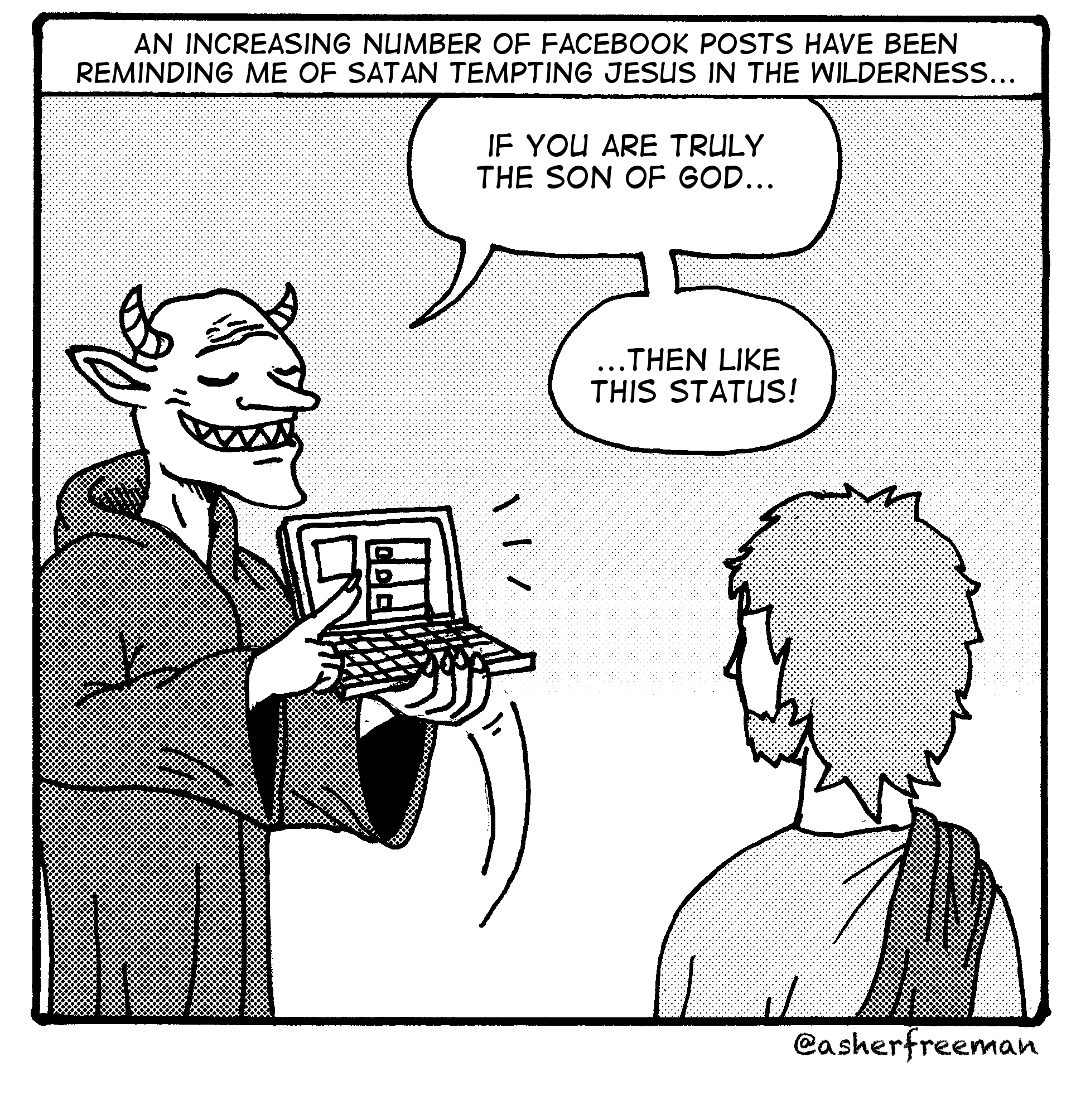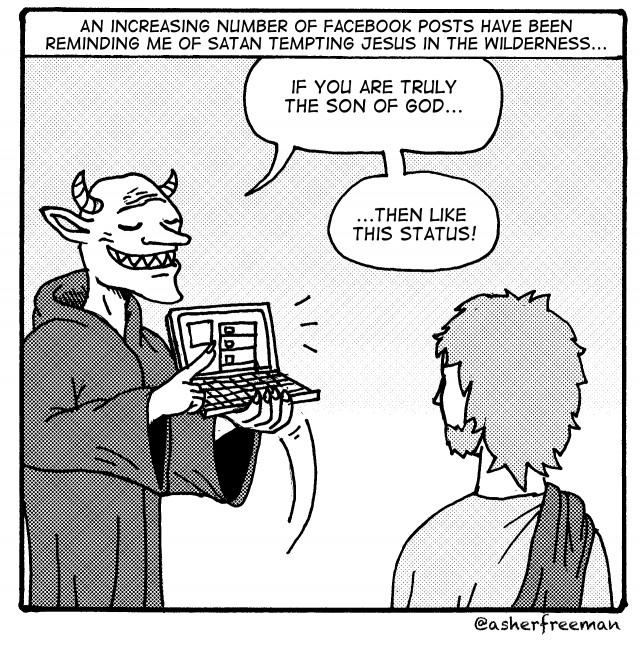On average, a person spends up to eight hours a month on Facebook, whether it’s connecting with old friends, feeding your chickens on Farmville or — let’s be real — Facebook stalking.
If you haven’t already noticed, your timelines on Facebook are beginning to appear like MySpace back in the day or the silly emails that were forwarded to your Hotmail account with lEtTeRs ThAt LoOkEd LiKe ThIs.
Basically, there are pictures going around asking you to “like” something in order to show support for it or to see something happen.
“If you like this picture, you are telling the world you believe in Jesus. If you don’t, you’re going to hell.”
Hmm, nowhere in Scripture does it say, “If you do not like this Facebook post, you will not enter into the Kingdom of God.”
That’s just stupid.
Another way this is happening is when a picture is posted, and you must like it because a tiger will pop up if you do.
Is Harry Potter living inside your computer?
The most popular method is a heart-wrenching picture of a sick child who will be healed with the money your likes will earn for her.
Bills aren’t paid by sympathy- inspired clicks on a thumbs-up button.
While these methods seem rather silly, it has not stopped tens of thousands of people from falling for them.
So, what’s the purpose of posting these things anyway?
Two words: cash money.
To understand this, you have to look at the “Facebook like algorithm,” Facebook’s way of determining what is important to its users.
The more likes, shares or comments it gets, the more exposure to certain people it, and the profile it belongs to, will get.
All of this adds up to create a user’s “edge rank” – the score your profile is given that dictates how your page interacts with other profiles on Facebook.
The greater the edge rank, the more it will be exposed in people’s news feed.
Edge rank is the reason your news feed is different now. Certain people and pages have edge rank factors that Facebook have decided are relevant to you.
How is money made from all this?
With all the buzz about social media these days, businesses are trying to utilize them to better their companies, knowing that edge rank and likes are important to the viewership they will receive. But the problem is, building up these audiences and edge rank is a difficult and time-consuming task.
However, they can cheat and buy a page that already has a high score.
Introduction: spammers.
They create a page with a crazy promise or sad story and ask people to comment or like it.
Then they share it.
In order to work, it has to be a large group of people who have spent a bit of time building up their profile score.
This means that over time, the link will find its way onto the pages of real people. They like or comment on it, and it spreads until tens of thousands of people have liked and commented.
Then the user changes a few details of the page and suddenly anyone can buy it, with a pre-prepared high profile score.
It means that not only are you filling the news feeds of your friends with stupidity, but also you’re helping spammers earn money.
Your commenting on a piece will never make the picture do something, and your liking it will never cure disease or “show your support” for anything other than a bunch of professionals who have set out to exploit you.
Congratulations.
Instead of liking random posts in order to help people out, get outside the Baylor Bubble and do something that will really make a difference.
In our comfortable living spaces with our cars that work and pantries full of what we need to live, not even a mile outside of campus are people lacking what we take for granted.
Volunteer at the Salvation Army or Mission Waco.
Have a taco party where you make breakfast tacos on Friday night and give them to the homeless on Saturday morning.
When Jesus said, “Go and make disciples,” he did not say, “Like all the sad pictures on Facebook.”
Going does not mean we have to leave this country. It means we need to stop being so concerned with ourselves and focus on those around us.
If we would quit worrying about how many parties we are invited to or how many name brand articles of clothing we have in our closets and started paying attention to the world around us, a change could be made in Waco.
And not because we liked a stupid picture on Facebook.







